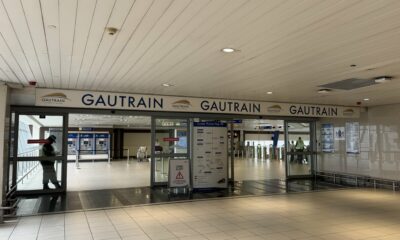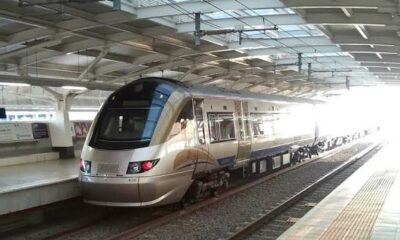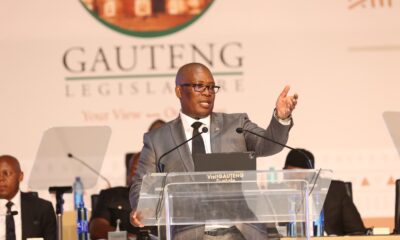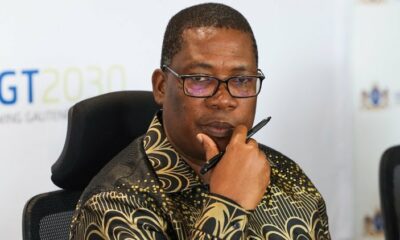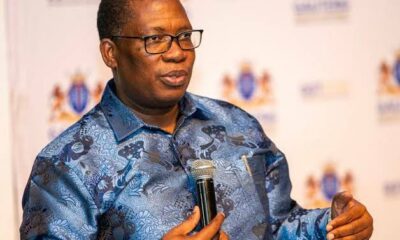News
Race to Redemption: Can Johannesburg Shine Before the G20?
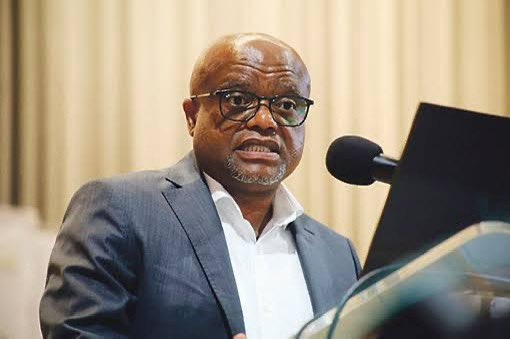
With world leaders set to descend on Joburg this November, Gauteng scrambles to fix the basics. But are these repairs for the cameras or for the people?
Johannesburg on Deadline
With just over 100 days to go, Johannesburg has become a city under construction. From pothole-pocked roads to flickering streetlights and crumbling intersections, the clock is ticking—and it’s loud.
Premier Panyaza Lesufi is on a mission: fix the city before the G20 Summit in November. World leaders are coming. Eyes will be watching. And frankly, Joburg’s not looking its best.
But Lesufi insists this isn’t just about optics. “I don’t want to do this for the G20,” he said recently at a press briefing. “I’m doing it for the people of Gauteng.”
The big question? Will residents believe that and will it last?
Ramaphosa’s Embarrassment Sparks Action
This whirlwind of activity didn’t begin voluntarily. Back in March, President Cyril Ramaphosa delivered a pointed critique of Johannesburg’s state after visiting potential venues for the G20.
“What I saw wasn’t pleasing,” he said. “We need to improve, immensely.”
The comment reportedly landed like a slap. A public apology quickly followed from Lesufi, who admitted the president’s experience “should never have happened.”
It was a rare moment of blunt honesty in a city often slow to fix what’s broken. But it sparked something: urgency.
Every Tuesday is Inspection Day
Since then, Lesufi and his team have taken a hands-on approach. Every Tuesday, Gauteng’s leadership now tours the metro, clipboard in hand, to inspect the repairs themselves.
“Sometimes we say we’re ready, but society isn’t convinced. They still see potholes. They still see streetlights out,” Lesufi said. “So now, we’re ranking every municipality and physically checking the work.”
And the work is… mixed.
Progress Report: Some Wins, Some Warnings
A recently released readiness report gives a street-level view of how each region is doing. It’s detailed, and at times, a little bleak.
In Johannesburg, pothole repair work is about 72% complete, and streetlight fixes range from 71% to 93%, depending on the area. That’s not nothing, especially considering how bad things looked in January. A plan to fix 40 vandalised traffic signals is set to run until October.
But Tshwane? Streetlights are only 32% complete, and there are major gaps in grass cutting and road marking. Ekurhuleni, the city hosting OR Tambo International Airport, faces deeper issues, like an untreated sinkhole on the R23 and the collapsed Rondebult mineshaft. Most items there sit at 0% progress.
That’s worrying, considering it’s the first point of contact for many G20 delegates.
Midrand Lit Up, But Skepticism Remains
Lesufi boasts about visible changes. “Midrand is lit up now,” he said. “The M2 between Midrand and Sandton was dark, it now has lights. If you drive from OR Tambo on the R24, you’ll see the difference.”
On social media, residents have had mixed reactions. Some are praising the noticeable improvements in certain areas. Others argue the upgrades are too limited and appear rushed or performative.
“Let’s not pretend these potholes weren’t there for years,” tweeted one user. “Fixing them now for the G20 is like cleaning your lounge when guests arrive, but leaving the bedrooms in chaos.”
A Deeper Question: Who Is This For?
While the urgency is welcome, many are asking what will happen after November. Will repairs continue? Or will Johannesburg fall back into the same cycle of neglect and reactive governance?
Lesufi claims the current momentum is a launchpad, not a one-off. “This is about restoring dignity to our residents,” he said. “The G20 is just a trigger.”
His administration is collaborating with Joburg Mayor Dada Morero and even President Ramaphosa’s national task team to keep the pressure on. Locals have dubbed the cleanup team the “bomb squad”, a nickname that shows both the high expectations and the mess they inherited.
What This Moment Could Mean for Joburg
This isn’t Johannesburg’s first attempt at reinvention. Once hailed as a “world-class African city,” it’s struggled in recent years under the weight of crumbling infrastructure, power outages, and political turnover.
But hosting the G20 is more than just a PR moment. It’s a litmus test.
If the city pulls it off, it could signal a real shift in priorities and a chance to reimagine what Johannesburg can be when the pressure isn’t from foreign dignitaries but from its own citizens.
If not, the G20 may come and go, leaving behind only fresh asphalt and old frustrations.
With just more than 100 days left before the City of Johannesburg hosts world leaders at the G20 Summit, Gauteng Premier Panyaza Lesufi believes the city will be ready for the event in November, despite a lot of work that still needs to be completed. @TheCitizen_News pic.twitter.com/c8a8lQmAUj
— 𝙵𝚊𝚒𝚣𝚎𝚕 𝙿𝚊𝚝𝚎𝚕 ⚡️ (@FaizelPatel143) August 4, 2025
A Wake-Up Call with a Deadline
What we’re seeing in Johannesburg right now isn’t just cosmetic, it’s symbolic.
The G20 preparations are forcing the city to confront years of inertia. And while no summit can fix decades of dysfunction, perhaps it can do something more important: reignite belief that change is possible, and that our leaders can act when the stakes are high.
Let’s hope that same energy sticks around, long after the motorcades leave town.
{Source: The Citizen}
Follow Joburg ETC on Facebook, Twitter , TikTok and Instagram
For more News in Johannesburg, visit joburgetc.com

